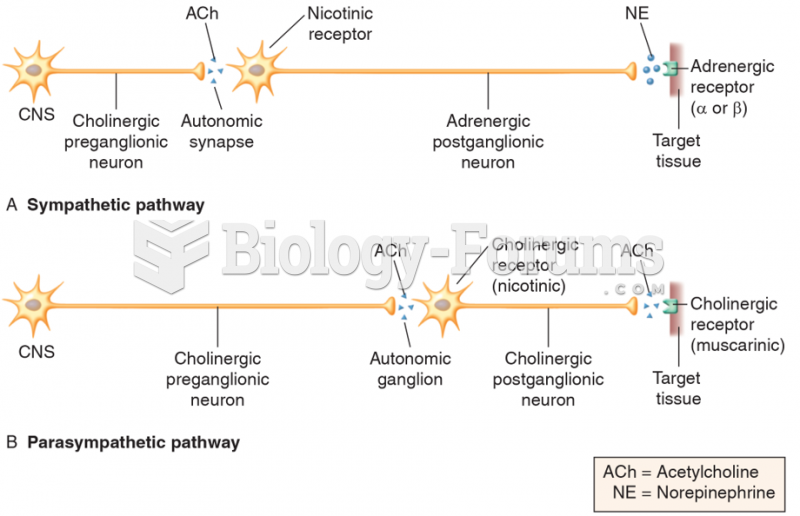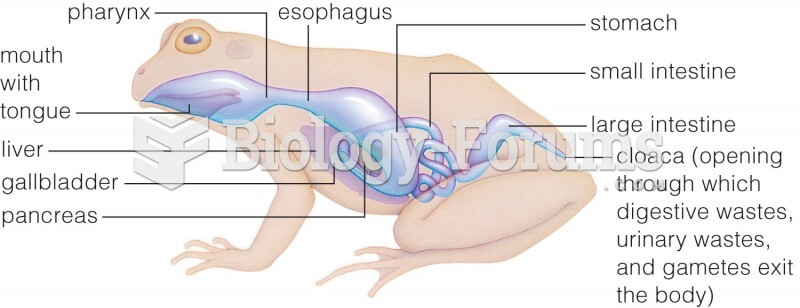|
|
|
On average, someone in the United States has a stroke about every 40 seconds. This is about 795,000 people per year.
Chronic necrotizing aspergillosis has a slowly progressive process that, unlike invasive aspergillosis, does not spread to other organ systems or the blood vessels. It most often affects middle-aged and elderly individuals, spreading to surrounding tissue in the lungs. The disease often does not respond to conventionally successful treatments, and requires individualized therapies in order to keep it from becoming life-threatening.
The immune system needs 9.5 hours of sleep in total darkness to recharge completely.
Vaccines prevent between 2.5 and 4 million deaths every year.
The first monoclonal antibodies were made exclusively from mouse cells. Some are now fully human, which means they are likely to be safer and may be more effective than older monoclonal antibodies.







